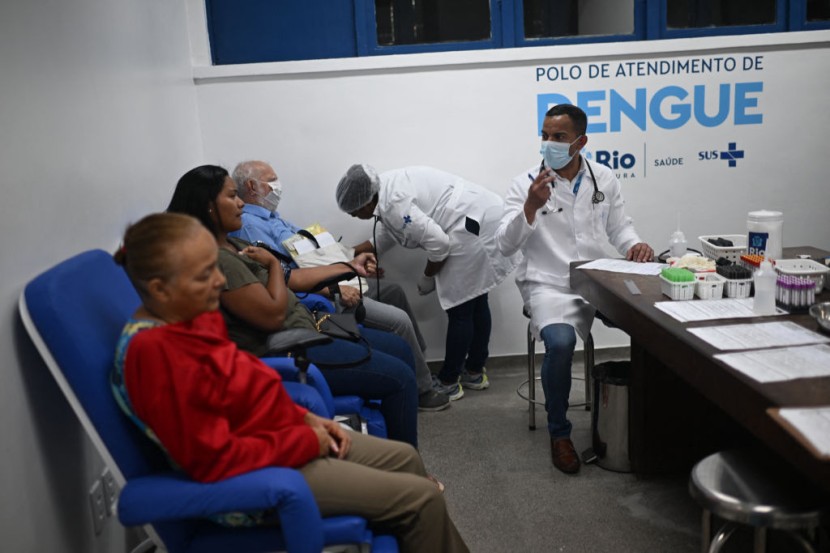Amid the bustling preparations for Brazil's world-renowned Carnival celebrations, Rio de Janeiro faces a severe health crisis as Mayor Eduardo Paes declares a state of public health emergency due to an alarming surge in dengue fever cases, causing 40 deaths and an additional 265 under investigation.
The occurrence of dengue in the country has surged fourfold in January compared to the previous year. The Health Ministry said that within the initial five weeks of this year, there have been a total of 364,855 reported cases of infection in the Brazil, notably with Rio de Janeiro documenting 10,000 cases thus far in 2024, a significant escalation from the 23,000 cases reported throughout the entirety of 2023.

In response to the escalating crisis, Rio city hall has announced a series of urgent measures aimed at containing the spread of the disease. Ten care centers will be opened, along with the establishment of an emergency operations center.
The urgency of the situation also prompted the Brazilian Air Force to establish a 60-bed field hospital in the Federal District, aiming to alleviate the burden on emergency care units overwhelmed by dengue patients.
Furthermore, authorities will utilize "smoke cars" in areas where dengue cases are most prevalent, releasing insecticide to eliminate mosquito breeding sites.
Governor Cláudio Castro presented Rio state's operational plans for Carnival, including the "Against Dengue Every Day" campaign, which involves distributing repellents, stickers, bandanas, and hats with disease warnings to Carnival attendees at the iconic Sambadrome venue.
Other states, including Minas Gerais, Acre, and Goiás, have also declared public health emergencies in response to rising dengue cases.
During his visit to Brazil on Wednesday, Tedros Adhanom, the Director-General of the World Health Organization (WHO), attributed the fueling of the dengue outbreak to the El Niño phenomenon, which has brought heightened rainfall to the country.
"This current dengue outbreak is part of a large global increase in dengue fever with over 500m cases and over 5,000 deaths reported last year from 80 countries in every region of the world except Europe," he explained.
Read Also: Listeria Outbreak That Caused 2 Deaths Linked to Recalled Dairy Products, CDC Says
Commencement of Dengue Vaccination in Brazil
While efforts to combat the outbreak are underway, challenges persist, including limited vaccine availability.
According to a statement from the health ministry, Brazil has purchased 5.2 million doses of the dengue vaccine Qdenga, manufactured by Japanese pharmaceutical company Takeda. Additionally, the statement noted that an extra 1.32 million doses have been provided to the government at no cost.
Eder Gatti from Brazil's health ministry said that the public health service had received a limited number of doses from the Japanese laboratory. As a result, the government intends to prioritize large municipalities with high dengue transmission rates.
The local government announced on Wednesday that the country will commence vaccinating children aged 10-14 against Dengue with Qdenga starting this Friday.
Brazil approved a dengue vaccine in March 2023, becoming the first country to offer it through the public health system.
With Carnival festivities looming, authorities are racing against time to curb the spread of dengue and ensure the safety of residents and visitors alike. The Rio Carnival 2024 is slated to run from February 9 to February 17.
According to data from the US Centers for Disease Control and Prevention (CDC), dengue affects up to 400 million people worldwide annually, making it the most common virus transmitted by mosquitoes. Dengue is a viral infection transmitted primarily by the Aedes aegypti mosquito, which is known to carry the disease.
Dengue presents with symptoms including fever, severe headache, pain behind the eyes, muscle and joint pain, and a blotchy rash.









